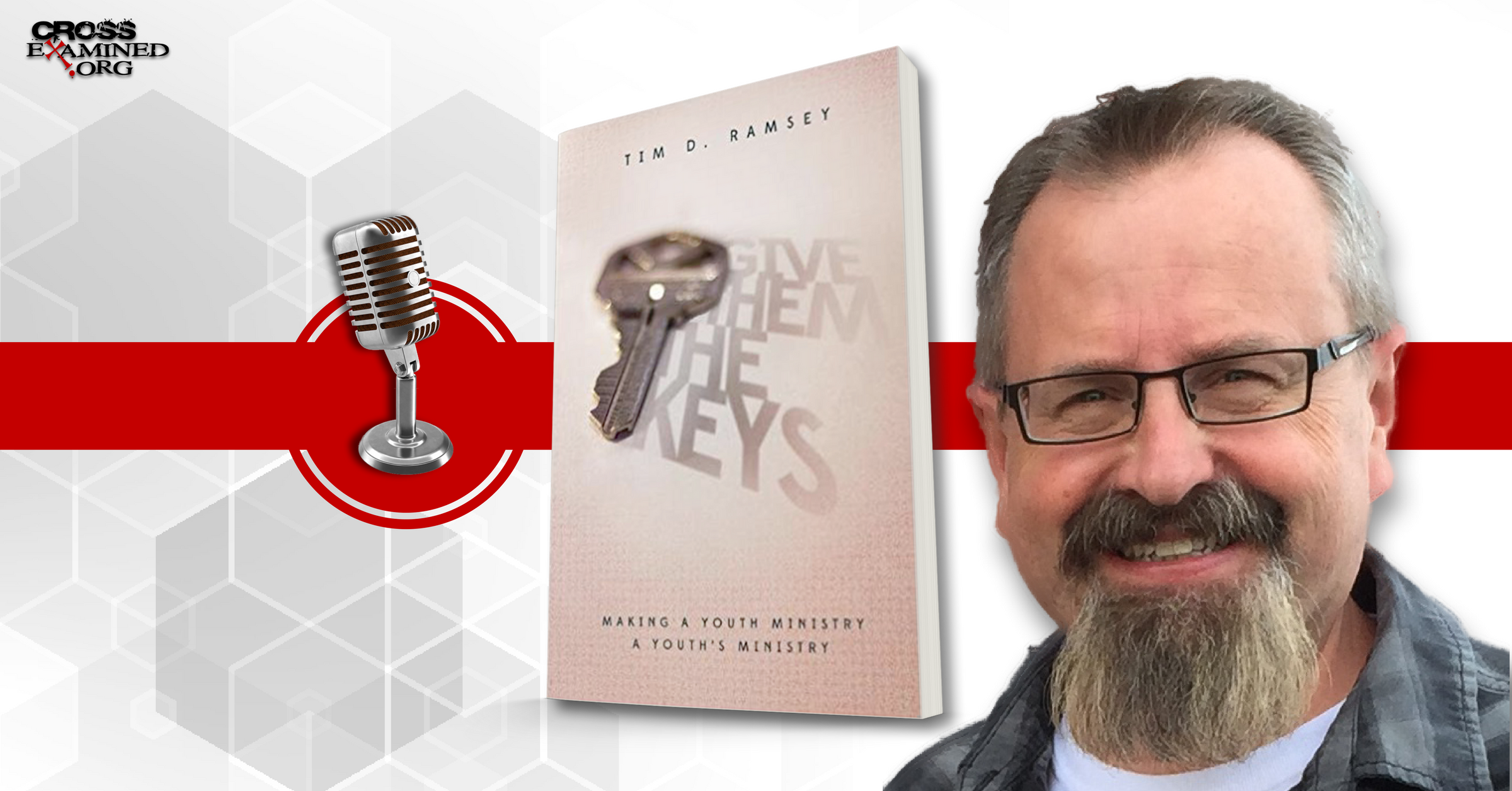Divine Impassibility: God As Our Unaffected Fortress
Several of my previous blogs have dealt with divine simplicity and some objections to the doctrine. As I have written, it is the most important divine attribute, even if it is hotly debated.
Those who accept simplicity are on a completely different theological trajectory from those who reject it.
I would argue that its acceptance puts one on the trajectory to classical theism while its denial puts one on the trajectory to process theology since its rejection implies or outright states that God changes and is thus in a process. If simplicity is true, then God is without potency, or the potential to change. If he is without the potential to change, then by definition he cannot change—it is impossible. He is thus immutable. He is in a state of being, not in a state of becoming.
This leads to another important doctrine, and almost as disputed as divine simplicity: divine impassibility. If God cannot change, then he cannot be affected by anything in a passive way. We cannot make God any different than he is. We don’t make him happy, sad, upset, etc. We don’t add or take away from him in any way. In other words, he is impassible.
In short, this doctrine denies there are passions in God that are changed by his creation. God does not have human emotions. Stating this doctrine, especially to those who have never heard it, usually upsets people. They tend to get emotional about it. After all, doesn’t the Bible teach that God gets angry, jealous, pleased, and the like? Yes, it does. It also teaches that God has a body if we take it literally. God “went down” to Sodom and Gomorrah to see what they were doing (Gen. 19). God is said to have nostrils (Ex. 15:8), ears (2 Sam. 22:7), fingers (Ps. 8:3), and many other body parts. However, orthodox Christians do not believe that the Bible is literal when it says this. After all, John 4:24 says “God is Spirit.” So, if the Bible uses such figurative terms for God having a body, why wouldn’t we take the emotional language to be just as figurative? Historically passions have been tied to physical bodies.
Since God is not physical, he has no passions.
But how do we know that the passages that talk about God being physical aren’t literal, and the passages that talk about him being spiritual aren’t figurative? The answer is in one word: philosophy. We use our philosophical views to interpret Scripture. Since we have arguments and reasons to believe that God is immaterial, eternal, immutable, omnipresent, etc., Scriptures that describe God in contradictory ways to these attributes must be figurative. This should not be surprising given the fact that the Bible tells us that we can know God’s “invisible attributes, namely, his eternal power and divine nature, [which] have been clearly perceived ever since the creation of the world, in the things that have been made” (Rom. 1: 20).
So, what does the Bible mean when it says things like God is angry or jealous? It is using figurative language to express a literal truth about God. God is described as angry because he brings about effects and results in a similar way that angry people do, such as wrath, judgment, and destruction. He is said to be jealous since he is against his people going after other gods. This is similar to describing God as a fortress. It should be obvious that God is not made of brick and mortar, but he is similar to a fortress in that he is immovable and stable.
Since the Bible is not a philosophy or theology textbook but rather a collection of letters to his people, it is not surprising that it describes God in such figurative ways. This is really not avoidable. Most people don’t have the time or inclination to study God on a metaphysical level. Thus, the writers of the Bible wrote it so that the words would resonate with its readers. They could have written a dissertation on God being immutable, or they could just say that God is a fortress or a rock. These figurative descriptions resonate with people since figurative language is so highly used. The same is the case with God being angry about sin. We all know what that means. It means that God is against sin and he takes action against it. Even if one didn’t have the metaphysical background to recognize the figurative use of the language, he would still be right in knowing that in some way God is against sin.
Let me say a word about the incarnation as it usually comes up in discussions on divine impassibility. Divine impassibility has only been attributed to the divine nature. It does not hold that Jesus’ human nature is without passions or is immutable. The one person of Jesus has two natures: divine and human. They are not confused (do not overlap). The divine nature is wholly divine while the human nature is wholly human (without sin). So, while it is true that Jesus is God, his human nature is still a human nature, passible, and changeable, while his divine nature remains untouched by human passions or changes in any way.
Like divine simplicity, divine impassibility has fallen on hard times. Many today hold that a being that cannot be affected by our plights, fears, problems, etc. is not a person, not the God of the Bible, and not worthy of worship. Such a God is often compared to the Unmoved Mover of Aristotle that did not care about the world but only contemplated himself. Such is the view of thinkers like William Lane Craig. Consider his answer to a question asked on his website:
“The view that God is in no way affected by creatures is called the impassibility of God. . . . God cannot suffer emotional pain. Divine impassibility was thought by medieval Christian theologians to be one of the attributes of God. So you would find many Christians historically who would agree with [this] view. But on the contemporary scene, there are very few theologians who would defend such a doctrine. There seems to be no good reason for taking the biblical descriptions of God’s emotions non-literally. Far from seeing susceptibility to emotional pain as a weakness, most contemporary Christian philosophers and theologians would say quite the opposite: that it is a weakness for a person to be unmoved by human suffering and a strength to feel emotions, including pain, indignation, compassion, etc. In fact, think of the etymology of the word ‘compassion’: to suffer along with. As the greatest conceivable being, God must be compassionate and share our sorrows and joys. Impassibility is actually a weakness, whereas compassion redounds to God’s greatness.”
This is a fairly typical response from those who hold that God is passible. Notice that there is no philosophical or theological argument here, simply an emotional appeal. It is indeed a weakness for humans to be “unmoved by human suffering,” but we are not talking about a human. We are talking about God. Such blurring of the Creator/creature distinction occurs when we reject divine simplicity.
Having said all that, it is not the case that God as an impassible being is uncaring toward our suffering. This is a mischaracterization of the God of classical theism and the God of the Bible. Being impassible does not equate to being uncaring or unloving. It simply means that given the kind of being God is (based on philosophical investigation that is legitimate even according to the Bible) he is not the kind of being to be affected. He is perfect in himself without any addition or subtraction to his being.
To be the kind of being to be affected he would have to be changeable, temporal, and composed (by whom?). But to be changeable and temporal is to be in a process of change, or just simply in a process. Thus, to agree that God is passible, changeable, and temporal would to agree on some level with process theology. How can God change and suffer along with us without being in a process? Again, either classical theism is true, or process theology is true. There is no third option as attributes like simplicity, immutability, impassibility, and eternality (in the classical sense) are contradictory with their opposites. In other words, either they are true or not.
To modify these attributes is to deny them.
Would we really want God to be moved or suffer along with us like other humans do? Surely he knows of our happiness and sorrows, but does that mean he must be sorrowful with us to understand or care about us? (Again I am speaking of the divine essence, not the human nature of Jesus.) Should we not want a God of stability who cannot be moved or changed by anything? Such would seem to be a God more worthy of worship as we can always count on him being the same. Such also seems to be closer to the God of the Bible.
It should be clear that the acceptance or rejection of simplicity and other classical doctrines such as immutability and impassibility are vital for classical theism, and their rejection leads one to the only other option: process theology.
Recommended resources related to the topic:
What is God Really Like? A View from the Parables by Dr. Frank Turek (DVD, Mp3, and Mp4)
What is God Like? Look to the Heavens by Dr. Frank Turek (DVD and Mp4)
How Philosophy Can Help Your Theology by Richard Howe (DVD Set, Mp3, and Mp4)
J. Brian Huffling, PH.D. has a BA in History from Lee University, an MA in (3 majors) Apologetics, Philosophy, and Biblical Studies from Southern Evangelical Seminary (SES), and a Ph.D. in Philosophy of Religion from SES. He is the Director of the Ph.D. Program and Associate Professor of Philosophy and Theology at SES. He also teaches courses for Apologia Online Academy. He has previously taught at The Art Institute of Charlotte. He has served in the Marines, Navy and is currently a reserve chaplain in the Air Force at Maxwell Air Force Base. His hobbies include golf, backyard astronomy, martial arts, and guitar.
Original Blog Source: https://cutt.ly/MgPDZpX












Leave a Reply
Want to join the discussion?Feel free to contribute!